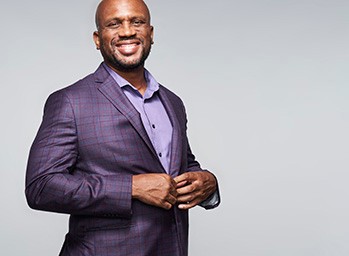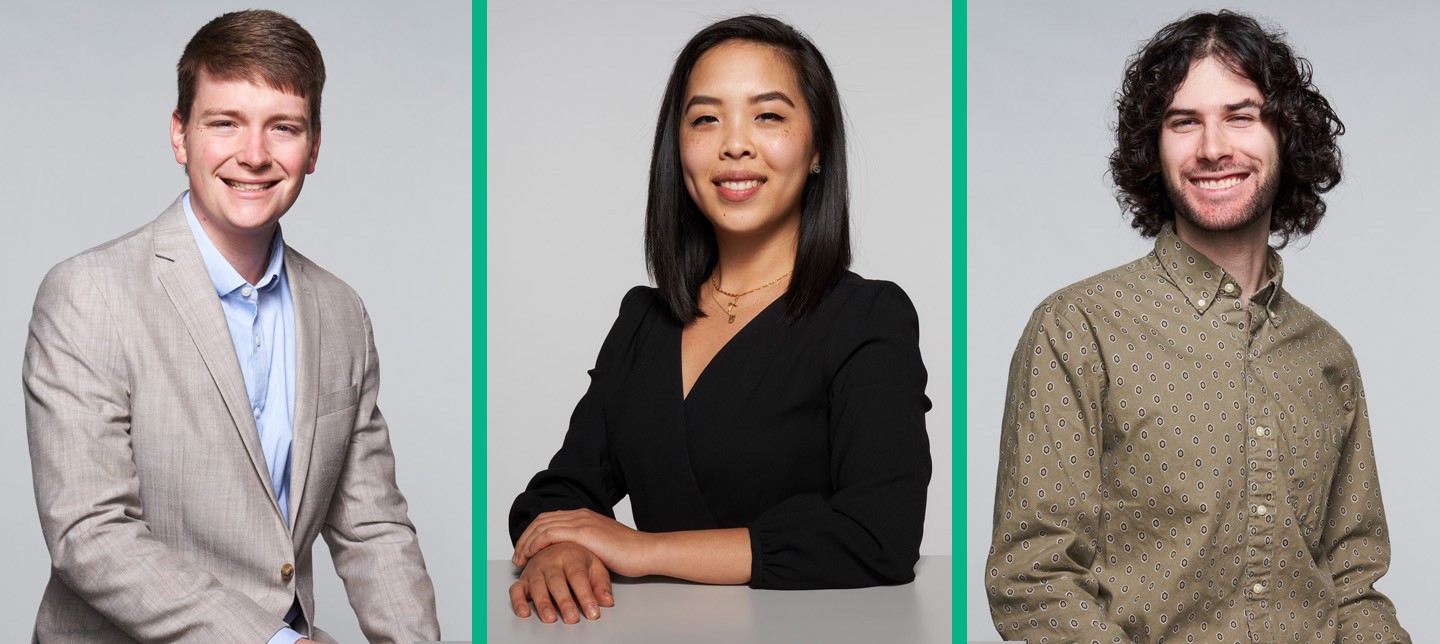
Driving Innovation through Diversity, Equity, Inclusion, and Belonging
Dr. Kazique Prince, NI’s global director of diversity, equity, inclusion, and belonging (DEIB), discusses why diverse teams are better positioned to drive innovation.

Whenever a new year approaches, it’s always nice to reflect on the past, but it’s even more rewarding to look ahead at what’s to come. We recently sat down with three talented engineers from our Generation NI program, Joseph Paller, Easton Davis, and Kirstie Yong, to learn about their backgrounds and their opinions on the future of technology. While we often hear from more seasoned professionals, these young engineers shared fresh insight on exciting technology developments and what we can expect in 2022 and beyond.
Joseph: From an early age, I was always enamored with how science is utilized. In my studies and post-grad work, I’m constantly learning how new technology is developed and how it plays into our everyday lives. Through NI’s new graduate cross-functional rotational path called XRP, I’ve gotten a lot of exposure to the company beyond just hands-on engineering, such as human resources and customer deployment projects. I still think I’m an engineer at heart, and I’ll probably end up doing more traditional, hands-on engineering, but it’s been invaluable to see the other aspects of the business behind the scenes.
Easton: Looking back, I was always interested in math, and I also enjoyed building and taking apart things, like re-engineering Nerf guns to make them shoot faster. By chance, I started taking aerospace engineering classes in college, but as time went on, I realized how much all my engineering classes really piqued my interest. Joining NI helped me discover the importance of test engineering—many of the advancements in technology we have today wouldn’t exist without test. Technology is rapidly evolving, and it has been exciting to work on things that are on the front lines of what will really shape our future.
Easton Davis, Rotation Engineer, Generation NI XRP
Kirstie: I’ve always been DIY (do-it-yourself) project oriented and loved hands-on activities, so I decided to pursue mechanical engineering in school. Like a lot of engineers, I have an intense curiosity about understanding how things work. Through my work in NI’s rotational path, I’ve also discovered that I have an interest in project management. I think where I end up will ultimately depend on what kind of products I want to work on and what kind of team I’d be working with. So far, I’ve been able to work with incredible mentors who are inclusive and supportive of my work, which has made me really enjoy my experience at NI.
Joseph: Wireless communication supporting connected devices is one of the fundamental aspects of technology that will shape society. As we move further towards 5G and 6G, we will see more and more connected devices sensing things in the environment and communicating with each other to keep us safer and healthier. We are already seeing things in technology that used to be done with hardware shifting towards being managed digitally.
I believe with long-term autonomy especially, more people will be using Mobility as a Service (MaaS) to access transportation without vehicle ownership, and overall, there will be a renewed focus on Vision Zero—zero accidents, zero emissions, and zero congestion.
- Easton Davis
Easton: From AI, to the electrification of everything with increasing levels of autonomy, to Web 3.0, we’re at the forefront of so many groundbreaking developments. I believe with long-term autonomy especially, more people will be using Mobility as a Service (MaaS) to access transportation without vehicle ownership, and overall, there will be a renewed focus on Vision Zero—zero accidents, zero emissions, and zero congestion.
In just a few years, we will be talking about things that we don’t even know exist today. Because of the rapid pace of innovation, engineers’ skill sets already must change every three to five years, and I expect that to speed up in the future. This will require engineers to check in regularly and continually realign themselves to what is happening in the field.
Kirstie: We are at the edge of several exciting things in technology. In just the electric vehicle space alone, new technology is advancing multiple aspects of daily life: from self-driving cars to food delivery systems to autonomous trucking. At the same time, the number of connected devices being developed continues to grow exponentially. With everything being so new, it is similar to the “wild, wild west” in that standards and/or rules are created simultaneously as technology is developed. During my time in school, I saw technology change very rapidly, quickly outpacing the rate of change than I think engineers from earlier generations experienced. For instance, coding languages that we thought would be around forever just ten years ago are now a thing of the past. I think it’s important for engineers to be open-minded when it comes to change and remain curious about how to handle whatever is yet to come.
Kirstie Yong, Rotation Engineer, Generation NI XRP
Joseph: What really motivates me is seeing the fundamental ways the technology we’re working on impacts people’s lives. There is a certain optimism as an engineer that those kinds of fundamental changes in the industries we serve are key to improving society. Often, engineers can be hyper-focused on their own work because that is how their impact is defined, but I think it is important to think about the bigger picture. Ultimately, we all want to work on things that will hopefully make the world better.
Joseph Paller, Rotation Engineer, Generation NI XRP
Easton: I see connected systems as the backbone of everything in the future of technology. There are already more connected devices on Earth than there are people, and that number will only continue to grow. How people move around cities, what vehicles look like, and the way we communicate with others will all be very different than it is today—it is already much different than it was just a few years ago. As technological innovation accelerates, it will be important to be able to operate and simulate things in the digital world, rather than solely in the physical one.
Engineers should be ethically and socially conscious about their work and how it affects society. We want to leave a positive impact on the world and need to make sure what we work on reflects that.
- Kirstie Yong
Kirstie: The work we do at NI is critical to helping companies test and be able to quickly create the best possible version of their products. It is exciting to think about all the possibilities of new technology, but we must also consider potential consequences; for instance, thinking about how new technology will impact jobs or the equity and accessibility of certain products. Engineers should be ethically and socially conscious about their work and how it affects society. We want to leave a positive impact on the world and need to make sure what we work on reflects that.